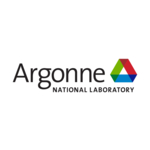CHICAGO--(BUSINESS WIRE)--Li-Bridge, a public-private alliance representing the U.S. battery ecosystem, convened by the U.S. Department of Energy (DOE) and managed by DOE's Argonne National Laboratory, released today an action plan to accelerate the creation of a robust domestic manufacturing base and comprehensive supply chain for lithium-based batteries.

The report – Building a Robust and Resilient U.S. Lithium Battery Supply Chain – includes 26 recommended actions for how to bolster the domestic lithium battery industry. These include a buying consortium for raw energy materials, a system of shared pilot lines to speed the commercialization of new battery technologies, significant investment in battery industry workforce training, and permitting reform.
According to the report, the U.S. can capture 60% of the economic value consumed by domestic demand for lithium batteries, generating $33 billion in revenues and creating 100,000 jobs.
The report complements a series of recent government initiatives designed to strengthen the country’s battery and semiconductor industries including the Inflation Reduction Act (IRA), the Bipartisan Infrastructure Law, and the CHIPS and Science Act—some of the most significant industrial policy initiatives in U.S. history.
Li-Bridge is spearheaded by three industry trade groups – NAATBatt International, the New York Battery and Energy Storage Technology (NY-BESTTM) Consortium, and New Energy Nexus – with active involvement from DOE national labs and Boston Consulting Group. Li-Bridge is the first collaboration of its kind in the U.S. battery industry.
“This report provides key insights and solutions toward the goal of establishing a resilient domestic manufacturing base and supply chain for batteries, summarizing in-depth discussions between private industry, DOE’s national labs, and federal partners,” said Argonne Director Paul Kearns. “The adoption of the report’s recommended actions can set the nation on a path for success.”
“Although we are starting to see activity in the domestic battery manufacturing sector thanks in large part to the Bipartisan Infrastructure Law and the IRA, U.S. industry is still 10 to 20 years behind Asia, and about five years behind Europe, in commercializing manufacturing of this critical technology,” said James Greenberger, Executive Director at NAATBatt International. “The electrochemical storage of electricity will be as important a technology to the economy of the 21st century as the semiconductor chip has been.”
Contacts
Christopher J. Kramer
Head of Media Relations
Argonne National Laboratory
media@anl.gov
Office: 630.252.5580
e riproduzione totale o parziale in qualunque formato degli articoli presenti sul sito.















